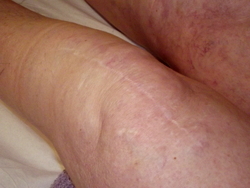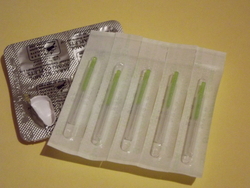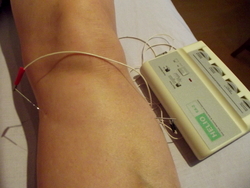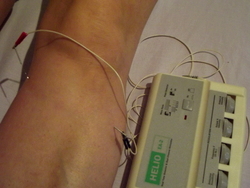
Researchers in Hertfordshire, England, have found that acupuncture can offer an acceptable and lower-cost alternative to knee replacement in patients with osteoarthritis.
A total of 114 patients with the condition, were offered acupuncture and 90 accepted. All patients, mean age 71, had severe symptoms, including constant pain and inability to walk long distances, and were eligible for knee replacement. Acupuncture was given in a group setting once a week for a month, after which treatment frequency was progressively reduced to one session every six weeks.
After one year, 41 patients were still attending, reducing to 31 after two years. Each patient received an average of 16.5 treatments. Symptom scores assessed by the patients themselves showed significant improvement in pain, stiffness and function after one month of treatment, with these improvements persisting over the two-year follow-up period.
Analysis suggested that acupuncture could save each local GP commissioning group around £100 000 per year. Numbers of total knee replacements were 10% lower in the GP commissioning group using acupuncture, compared with neighbouring groups. Taken across the whole of the UK, an estimated 76 500 such operations were performed in 2010, at a cost of around £5000 each.
(Group Acupuncture for Knee Pain: Evaluation of a Cost-Saving Initiative in the Health Service. Acupuncture in Medicine, on-line 20 August 2012.)


 Researchers have found that walking gait patterns in people with osteoarthritis of the knee, can be significantly improved by acupuncture, probably the researchers believe, due to pain relief.
Researchers have found that walking gait patterns in people with osteoarthritis of the knee, can be significantly improved by acupuncture, probably the researchers believe, due to pain relief. Researchers have found that treatment of knee osteoarthritis with electro-acupuncture, produces not only improvements in patients’ perceived levels of pain, but also changes in biochemical markers associated with stress and pain.
Researchers have found that treatment of knee osteoarthritis with electro-acupuncture, produces not only improvements in patients’ perceived levels of pain, but also changes in biochemical markers associated with stress and pain.